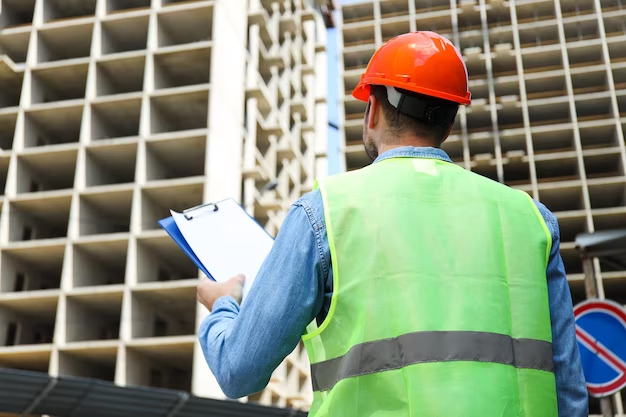The construction industry is a cornerstone of societal development, encompassing a range of disciplines including civil engineering and infrastructure projects. When searching for a top construction company, prospective clients and partners look for indicators of superior quality, consistent performance, and innovation in engineering. A leading construction firm is one that not only demonstrates exceptional skill in executing complex projects but also constantly adapts to the evolving technological landscape. This article will delve into the characteristics that distinguish a top-engineering firm in the construction sector and how a good construction company positions itself within the competitive market to lead in delivering value and excellence in infrastructure development.
Key Attributes of a Top Construction and Engineering Company
A top construction company is often gauged by its tenure in the business and the variety of projects it has completed. This experience translates into a deeper understanding of the intricacies of construction management and the ability to tackle unexpected challenges. A portfolio rich with diverse projects, right from commercial buildings to intricate civil works, attests to the firm’s competency across multiple domains of construction.
In the realm of top engineering firms, innovation is the lifeblood that fuels advancements and efficiency in construction processes. Leading construction companies invest in cutting-edge technology and push the envelope in developing smarter, more sustainable building solutions. This commitment to innovation not only enhances the quality and speed of construction but also underscores a company’s status as an industry trailblazer.

The Role of Good Construction Practices
A good construction company prioritizes safety above all, ensuring that every project meets or exceeds the industry’s safety regulations. Additionally, stringent quality control measures are non-negotiable, as they ensure that the final output stands the test of time and serves its intended purpose without fail.
As the world becomes more environmentally conscious, a contracting company that incorporates green practices and sustainable materials in its projects is better positioned. Energy-efficient designs, waste reduction protocols, and eco-friendly construction methods are vital for minimizing the environmental footprint of new infrastructure.
Measuring Success in Infrastructure Projects
To quantify the attributes that characterize top-performing companies in the construction industry, we can refer to the following table which outlines key metrics for evaluation:
| Metric | Description |
|---|---|
| Project Delivery Time | How quickly a company completes a project from start to finish. |
| Budget Adherence | The ability to complete projects within the set financial plan. |
| Safety Record | The frequency and severity of accidents on job sites. |
| Innovation Index | The degree to which a company adopts and implements new technologies. |
| Client Satisfaction Rating | Feedback and satisfaction levels from past clients. |
| Environmental Impact Assessment | Measures taken to reduce carbon footprint and environmental sustainability. |
These metrics serve as a yardstick to determine the standing of a top construction company within the industry, revealing strengths, areas for improvement, and overall commitment to excellence.

The Competitive Edge of Leading Construction Companies
In a fiercely competitive market, leading construction companies distinguish themselves by demonstrating an unrelenting drive to surpass industry benchmarks. One of the most critical aspects of the competitive edge is the combination of agility and precision in project management. These companies are known to navigate the complex logistics of construction with remarkable efficiency, ensuring that resources are optimized and timelines are strictly adhered to.
Effective Communication and Collaboration Strategies
Top construction firms excel in fostering open lines of communication among all stakeholders. Project managers, subcontractors, and clients are often engaged in a collaborative network that emphasizes transparency and shared goals. Effective communication mitigates misunderstandings and aligns vision, leading to better outcomes.
Robust Financial Health and Risk Management
Financial stability informs a company’s ability to invest in systemic growth and cushion against unforeseen economic fluctuations. Part of the financial prowess is in astute risk management, identifying potential setbacks early and strategizing to mitigate them without jeopardizing project integrity or timelines.

Pushing Boundaries in Civil Engineering and Infrastructure
Pushing boundaries in civil engineering and infrastructure involves innovative approaches and cutting-edge technologies that transform how we design, construct, and maintain our built environment. Here are some key areas where these advancements are making a significant impact:
- Smart Cities: Integrating IoT devices and smart technologies to create interconnected and sustainable urban areas.
- Green Infrastructure: Developing eco-friendly and sustainable construction methods that minimize environmental impact.
- Advanced Materials: Utilizing new materials that offer better durability, efficiency, and sustainability.
- Automation and Robotics: Employing automation and robotics to improve construction efficiency and worker safety.
- 3D Printing: Leveraging 3D printing technologies for rapid prototyping and construction, reducing waste and costs.
These advancements are not only enhancing the efficiency and sustainability of infrastructure projects but are also redefining the scope and potential of civil engineering to meet the challenges of the 21st century.
FAQ:
Q1: What makes a construction company “top” in the industry?
A1: A top construction company is distinguished by its extensive experience, diverse portfolio, adherence to safety and quality standards, technological innovations, and its commitment to sustainable practices. It also maintains solid financial health, effective risk management, and a strong track record of client satisfaction.
Q2: How important is sustainability in the construction industry?
A2: Sustainability has become a critical factor in the construction industry. Clients and regulatory bodies are increasingly emphasizing the need for eco-friendly practices. Leading construction companies are responding by integrating green technology, sustainable materials, and energy-efficient designs into their projects, significantly reducing the environmental impact and appealing to environmentally-conscious clients.









